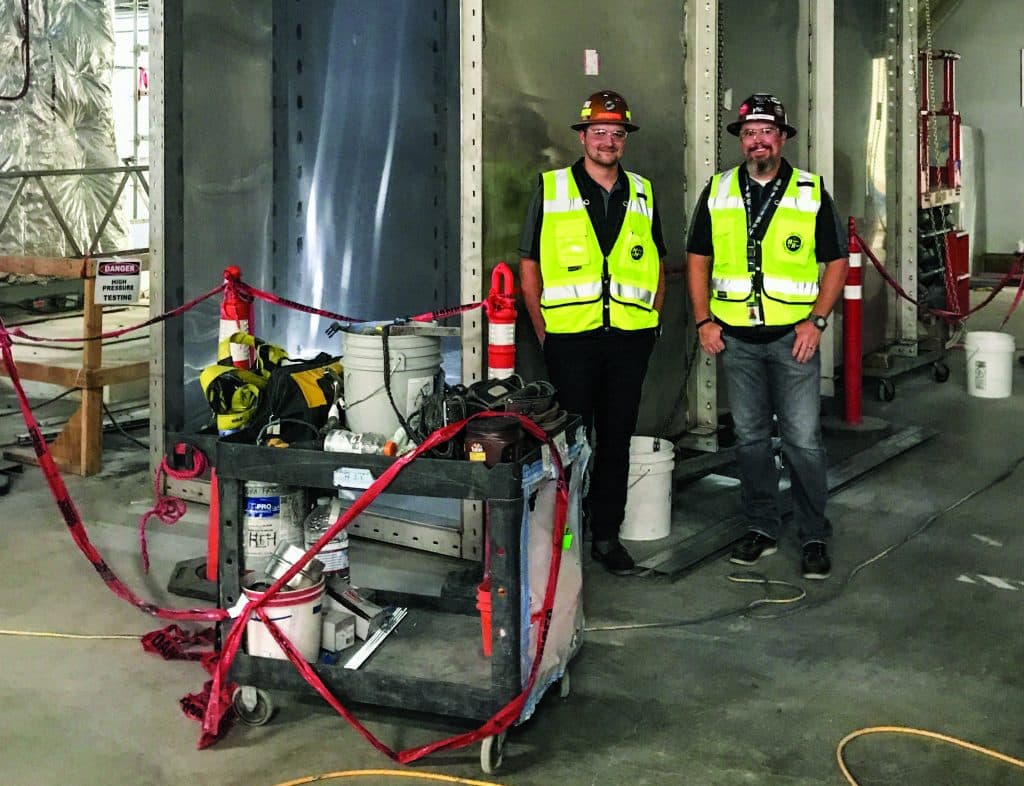SMART members across the country enjoy higher wages, better healthcare and stellar pensions thanks to the strength of our collective bargaining. But we can only maintain our power when we control substantial portions of a given area’s market share — and local unions can only grow their market share if they have a significant (and expanding) membership. In other words, it is vital that we bring nonunion workers into SMART.
“Organizing members is extremely crucial for SMART,” Local 28 (New York City) Business Rep. Marvin Tavarez said during a recent appearance on SMART News. “The more members we organize, the more companies we organize, the more capacity we have to go after the market share that we’ve lost.”
Increasing our membership and signing more union contractors is the most effective way for unions like SMART to compete with the open shop — particularly when it comes to forcing bad-faith contractors to play by the rules. It’s also the lifeblood of the labor movement.
“The only way that unions thrive and move forward is when we organize members,” Tavarez added. “That’s the way we create more market share.”
Along with overviewing the importance of organizing, Tavarez pushed back on some of the misconceptions union workers sometimes have about their unorganized peers. Some current SMART members think that newly organized workers will take their jobs away. In reality, adding more members to our union gives us a greater chance of securing more work, providing more job opportunities for everyone. When our membership stagnates, the open shop gains more sway — allowing them to flood local markets with cheap labor that exploits workers and lowers area standards. By organizing, we grow our power and win more jobs for SMART workers.
Additionally, Tavarez said, some SMART members who entered the union via apprenticeship programs think that members who organized in are “card-buyers” who don’t care about the union. In practice, though, the opposite is usually the case. SMART members who previously worked nonunion are grateful for the opportunities they’ve gained and ready to fight tooth and nail for their SMART brothers and sisters. One case study: Tavarez himself.
“We’re all workers at the end of the day, and the only way we’re going to build real worker power is by organizing the unorganized.”
“Before I got organized, I had eviction notices everywhere I looked,” Tavarez told SMART News. “I didn’t have any medical benefits, I had subpar wages … it seemed like every day was a cloudy day.” After joining SMART, everything changed: He gained stability, financial security, healthcare and a family-sustaining career. Now, he works on behalf of his union every day as a business rep.
Laws like the Bipartisan Infrastructure Law and the CHIPS and Science Act have spurred a surge in new megaprojects across the country, from a Ford battery plant in Kentucky to a Micron factory in upstate New York. Locals in those areas need to grow in order to secure that work for current and future members — and all members have a role to play in making that happen.
“We’re all workers at the end of the day, and the only way we’re going to build real worker power is by organizing the unorganized,” Tavarez pointed out. “And that’s how members can help: By influencing [new members], embracing them, teaching them right from wrong and showing them that the union is the only way to go in order for them to feed their family, elevate themselves and really change their lives.”
